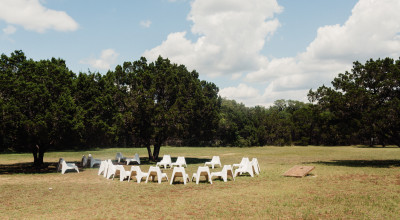What To Expect In Drug Rehab
October 8th, 2019
If you or a loved one are considering rehab, it’s hard not to look at it as a daunting, uphill battle. Deciding to enter rehab is a courageous leap that is often met with many questions. You may find yourself asking all sorts of questions from what a day in rehab may look like to wondering how long the rehab process will take. You might even be wondering what rehab is. Entering rehab can be a crucial step in one’s journey to sobriety, yet, rehab can come with many unknowns.
Let’s take a look at what one can expect during their time in rehab.
What exactly is rehab?
Rehab generally refers to inpatient or residential drug rehabilitation. This is a type of addiction treatment where one stays at a facility for an extended period to take part in various types of treatment. However, treatments can be presented in a variety of settings that accommodate the different needs of each person seeking rehabilitation. Outpatient treatment is another popular type of treatment. This is a method where one receives treatment while still living at home and continuing with day to day life. Deciding what setting is best for you or your loved one depends on the unique circumstances of each case. Ultimately, rehab exists to confront addiction to substances and help give you the tools to recover and remain sober long-term.
What takes place in rehab?
Every rehab center is different in approach and what day-to-day life may look like. However, most are built around the same few building blocks of rehabilitation. Here are a few of the different cornerstones of rehab that you or your loved one may experience in treatment.
Intake
Intake is the process one goes through when entering into rehab. It is an assessment procedure upon enrollment in which the staff learns more about you. This is done through discussing your family and medical history as well as by talking about what brings you to rehab and your history with treatment. Intake may look different at every treatment center, yet you can expect it to involve paperwork and a more specific look into the center you are seeking to enroll in. Intake is a time for both the staff and you to assess whether the specific program is a good fit and can provide what you need. If it is the right fit, intake can also be a time where you start to layout a treatment plan and a set of goals for your time in rehab. Intake is a crucial part of rehab that helps to start your treatment process and set your goals into motion.
Detox
Widely considered to be the first step in the rehabilitation process, detox is the practice of letting the body rid itself of any drugs or alcohol while helping with the withdrawal symptoms one will experience. A common misconception is that detox is rehabilitation, instead, detox is just the start of the rehabilitation process. It is recommended that you never detox without medical help. Detox in rehab will generally provide you with both the medical help and supervision you will need while experiencing the symptoms of withdrawal. With symptoms usually lasting up to a week, rehab programs will help guide you through this difficult period and will continually provide you with whatever medical or mental health care you may require. The detox process will pose many difficulties, yet, through proper supervision, it will ease you into clean living and the rest of your treatment program. Detox is the first true step of the rehab process and can be found in nearly every treatment method regardless of where you take part in rehab.
Treatment
Even after the detox process is complete, the rehab process may still be far from over. After detox, you can expect to start the rest of your treatment program. This will help you transition to sober living and return to normal life after treatment. However, it is important to note that treatment will look different at every center and more importantly with every individual. Treatment can take on several different forms, such as counseling sessions with an individual or through attending support groups with others undergoing treatment alongside you. Treatment can involve support programs such as the 12-step method or other popular rehabilitation methods. At Windmill Wellness Ranch, we offer a variety of therapies in order to best meet the needs of every individual who visits us. These can include EDMR, iTMS, and Alpha-Stim. Ultimately, the specific details of treatment will vary from place to place, but it is important to see treatment as the part of rehab that will provide you with the tools to live a clean, sober life.
How long will treatment take?
A common question that most have when considering or even taking part in rehab is, ‘how long will this take?’ You may hear numbers such as 30 or even 60 days thrown around when looking into rehab. However, it is important to note that rehab is a process that varies from person to person, meaning there is no set length of rehab. How long rehab takes is entirely dependent on the person and what they need to be feel comfortable and be successful in the long term. At Windmill Wellness Ranch, we believe length of stay is a very important aspect of the recovery process that should be discussed in detail and assessed frequently. It is recommended that you stray away from any place that sets a finite number of days on your time in treatment.
Rehab exists to help anyone who is struggling with substance abuse and is looking for help. The goal of rehab is to help you or a loved one dive deeper to the reasoning behind their addiction and provide them with the tools they need to be able to live a clean, sober life.
It is important when looking at where to enroll in treatment that you consider several factors that are important to you. This can ensure that you find the right fit for you or your loved one, as the wrong fit can only lengthen the process. Rehab is not easy but it can be a powerful tool that changes lives. Let Windmill Wellness Ranch help you change your life. Contact our admissions team today to get started on your path to recovery.


